Company News
Samsun Tech officially launched the artificial intelligence
With the rapid development of AI technology, artificial intelligence has gradually begun to be applied in the industrial field. For the first time, Samsen technology applies the deep learning technology to the 3C field defect detection equipment, the S-GAMMA defect detection system V1.0, which is based on the deep learning technology of artificial intelligence, has been developed, the core development team is led by internationally renowned professors, internationally renowned experts in artificial intelligence, IEEE academicians and Internet senior team. The system can be used for defect recognition, object classification, positioning and other functional applications, which can be used in 3C products and parts, semiconductors, LED, medicine, automobile and other industries, it combines traditional algorithms to perform high-precision appearance defect detection for the following types of products:
1. Metal Working Parts: Mobile Phone Keys, camera rings, Kato, Type-C casing, Charger Plug, and some precision working parts;
2, glass products: Mobile Phone Back Cover, screen glass, LCD panel, display, etc.;
3, plastic products: Mobile Phone Nano material back cover, charger plastic shell and other plastic products;
4, the whole machine and module appearance: mobile phone appearance detection, after the screen lighting appearance detection, camera module hexahedron appearance detection, Type-C plug appearance detection, Battery Module Appearance Detection;
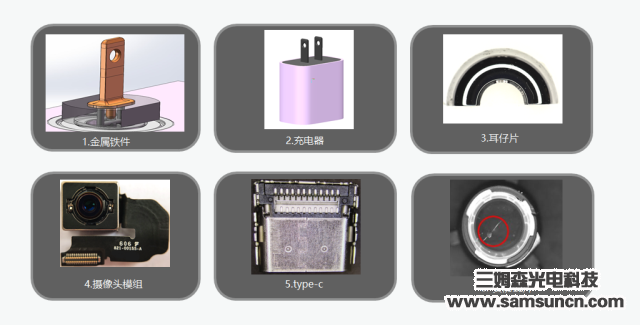
Common testing products in 3C industry
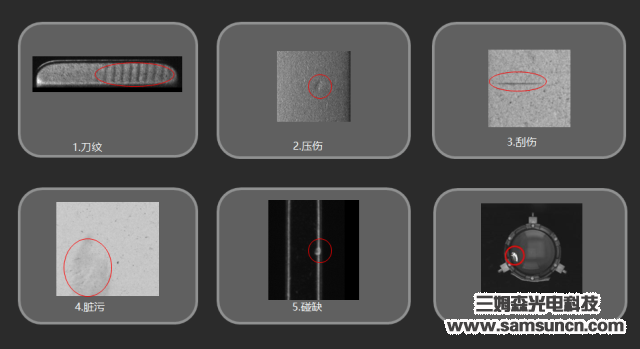
Common Inspection Defects in 3C industry
Deep learning is different from traditional industrial machine vision. It doesn't need a professional's custom development algorithm. Only a part of Ng and OK images are needed for defect labeling training, when new defect types are encountered in the later stage, the new defect detection can be completed only by completing the new defect sample training optimization model.
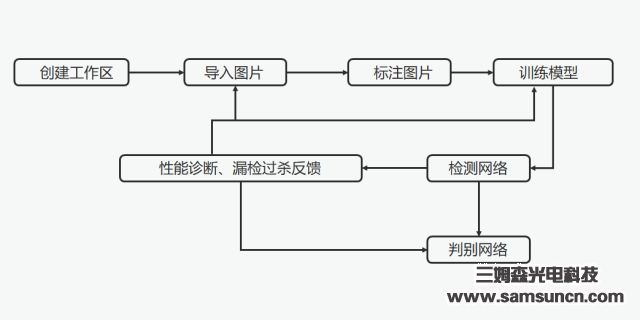
Deep learning inspection process
The application of deep learning in the field of appearance defect detection overcomes the problems that traditional algorithms are disturbed by complex background and can not classify the types of defects stably, deep learning has more advantages.
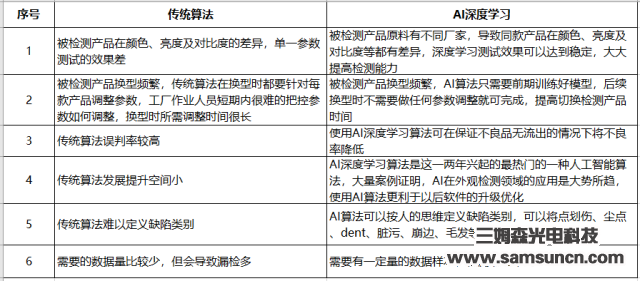
The contrast between deep learning and traditional algorithm
Case 1: Metal Parts appearance defect detection case sharing
Test Product:
Phone Charger PIN
Test content:
There are 6 kinds of defects on the 5 surfaces of producttest: scratch, pock (pitting) , notch, dirt, bright seal and impression
Testing requirements:
1. Failure rate of defective products within 0.3% ;
2.Product kill rate less than 5% ;
3.Dirt Blemish: for Firinca, less than 0.1mm²OK;
4.A scratch, a scratch:0.02~0.08 mm² Two or more NG,0.08~0.1 mm²1 NG。
产品缺陷分析:
1.The product surface structure is rough surface (similar to the Matte Texture) , for electroplating after the formation of the stage, the rough surface has a lot of pits affect the imaging quality
2.Scratch defects are surface concave defects, which may have damaged the plating layer. The shape of the pits is fine and deep, and the shapes and positions are different
3.The spot damage type defect is concave surface type defect, the area is smaller, but the distribution is more, the depth is different
4.Mold defect is the defect caused by the mold. When the product is tested after plating, the surface of the product has not much difference, and it is difficult to be recognized by human eyes.
5.Dirty bright printing defects for the product surface, electroplating layer on the existence of dirty and bright printing, did not hurt the plating layer
Detection Scheme:
Using linear equipment, manipulator loading and unloading, 5 Work Stations Detection, fixture can rotate, light source stroboscopic, step-by-step photography product surface defects, depth learning algorithm processing image, fully realize appearance defect detection, according to the test results automatically filled the tray, automatically fold tray material, as shown in figure;

Outline drawing of equipment
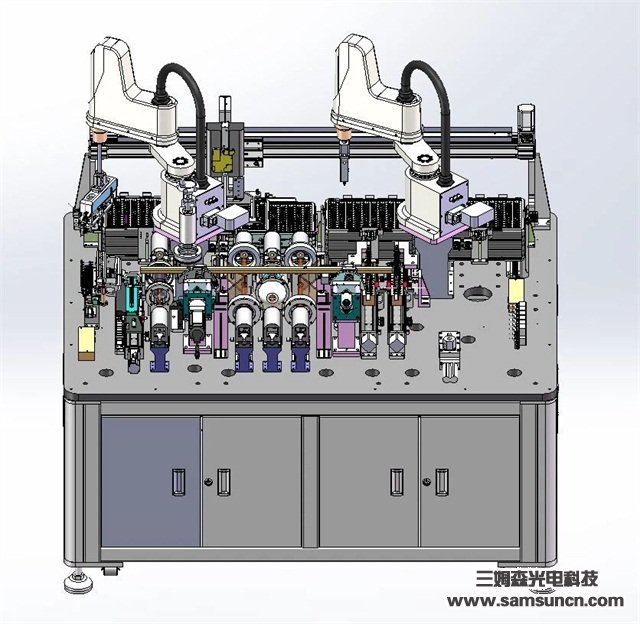
Inspection Station
Detection effect:
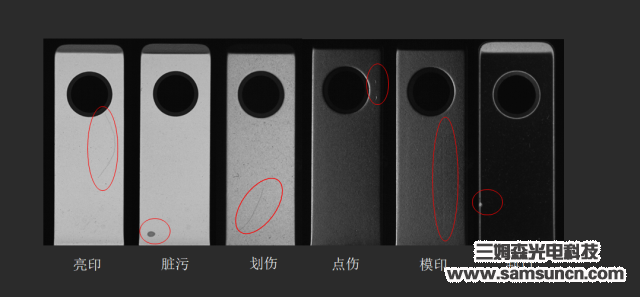
Case 2: TYPE-C appearance defect detection case sharing
Test Product:
Type-cConnector
Test content:
Test ProductBad aluminum chip, lack of pin, plastic chip foreign body, plastic damage, metal wire at the bottom of the tongue piece, tongue piece terminal leakage b point and other appearance defects;
Testing requirements:
1.Defective Products Miss Detection rate of 0% ,
2.The overkill rate of products is less than 5% ;
Detection Scheme:
It uses linear automatic equipment to connect the customer automatic production lines, and has 4 Inspection stations. Products are photographed and inspected through the direct vibration loading and moving to the Inspection Station. The method of combining the depth learning algorithm with the traditional algorithm is used, the product defects were detected and identified, and then Okng was classified according to the Detection effect, as shown in figure:
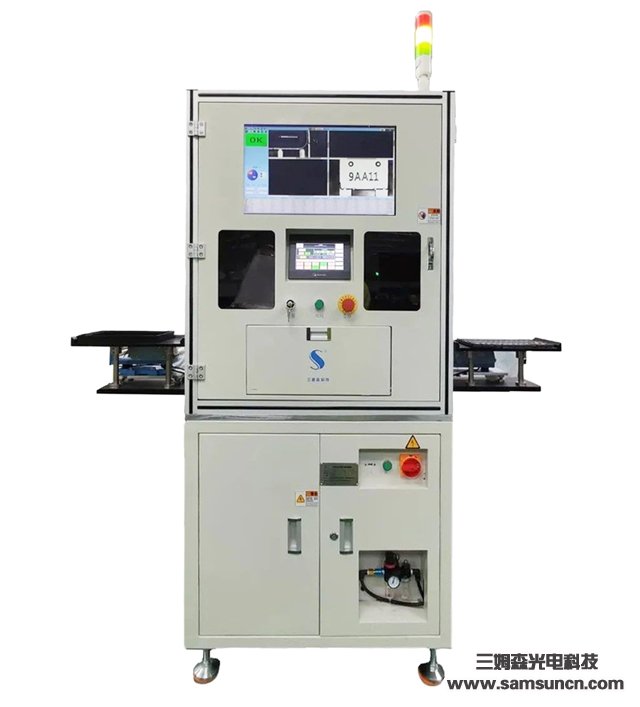
Outline drawing of equipment
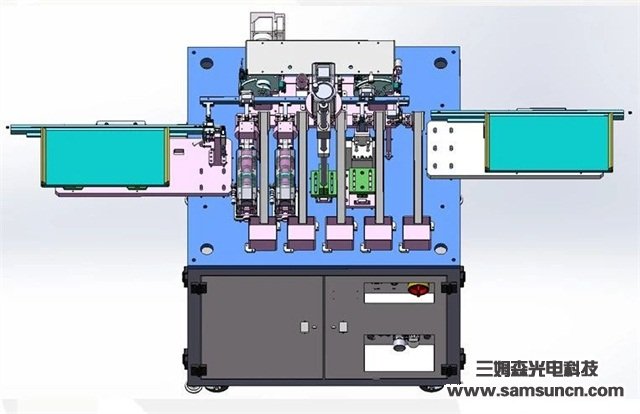
Inspection Station
Detection effect:
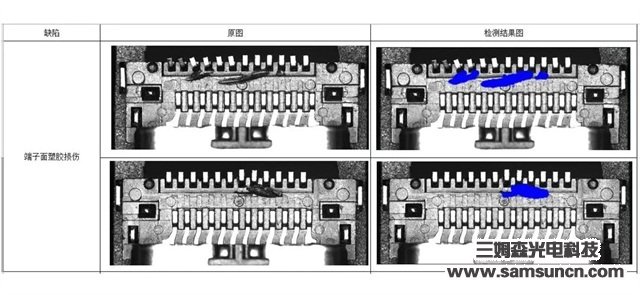
Detection effect1
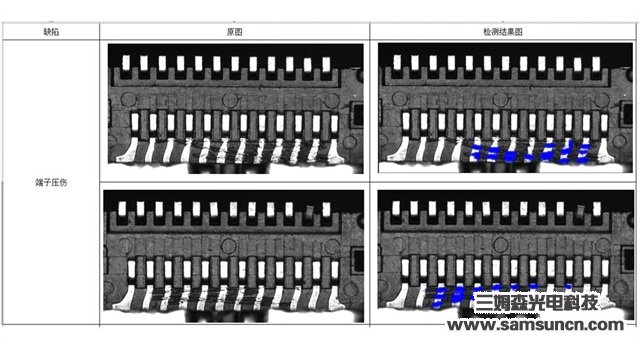
Detection effect2
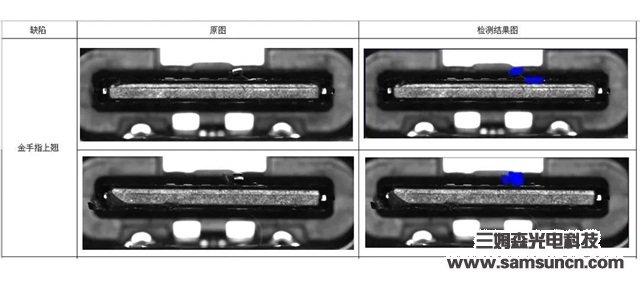
Detection effect3
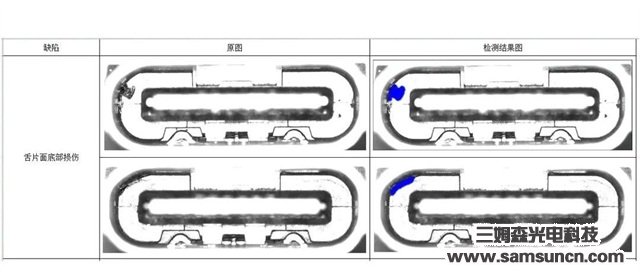
Detection effect4
Case 3: Character appearance defect detection case sharing
Test Product:
Laser character defect detection
Test content:
Test ProductBlack spots, white spots, different colors and other appearance defects;
Testing requirements:
1.Defective products miss detection rate of 0.5% ,
2.Product kill rate less than 5% ;
3.Black spot: 0.1 mm more than 2 NG, 0.15 mm 1 NG。
Detection Scheme:
The device adopts the method of loading the material on a Pan, the manipulator takes the whole pan product out from the pan and puts it into the detection fixture once, and the detection fixture absorbs the product and fixes it on the fixture through the bottom vacuum, the photo system with XY axis took photos of the products one by one, and the images were collected and judged by S-Gamma defect detection system, and the results were output to the classification organization for product classification。
Detection effect:
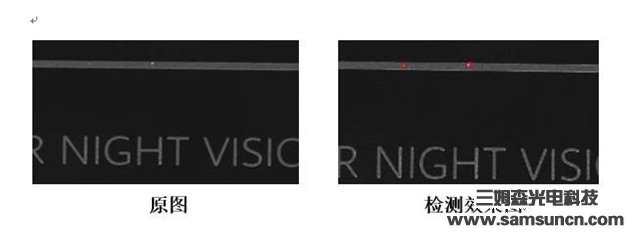
Detection effect1
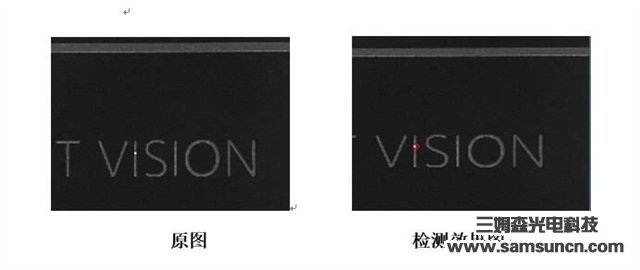
Detection effect2
Deep learning is a revolutionary breakthrough in artificial intelligence, greatly improving machine learning, machine vision, intelligent analysis and processing capabilities, bringing about changes in the industry, the upsurge of artificial intelligence, deep learning applied to appearance defect detection, so that the defect detection is no longer complex, the traditional algorithm is easy to be affected by complex background and other factors, more accurate improvement of product defect classification, the application of deep learning technology will improve the detection rate, the rate of missing detection, the rate of overkill and other indicators of product detection, to prevent the flow of bad products to the client, real-time data feedback system can be timely feedback out of the product data, to improve the quality of reference.




